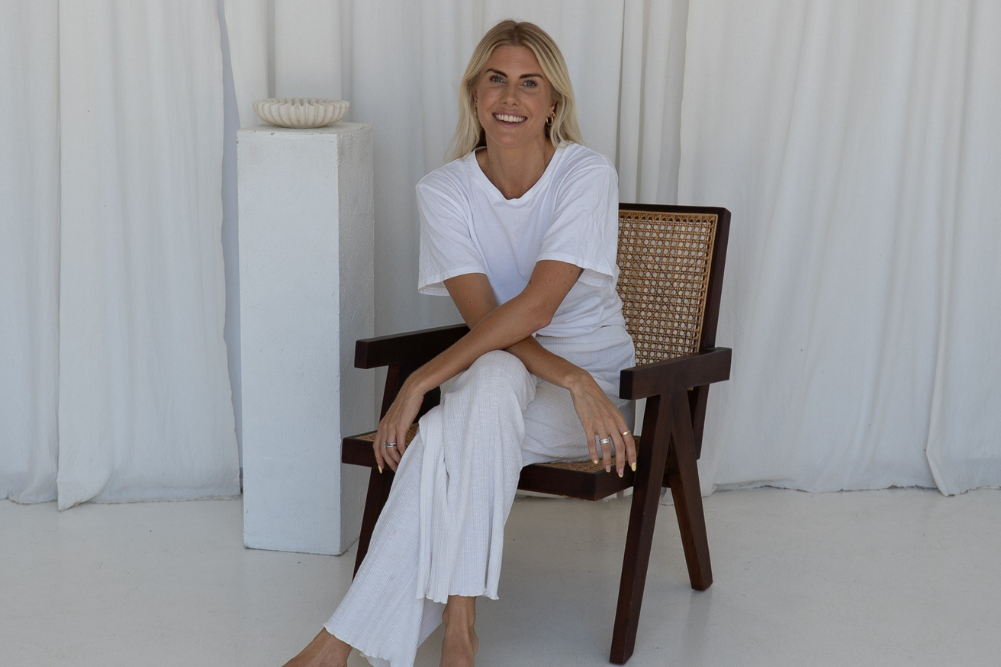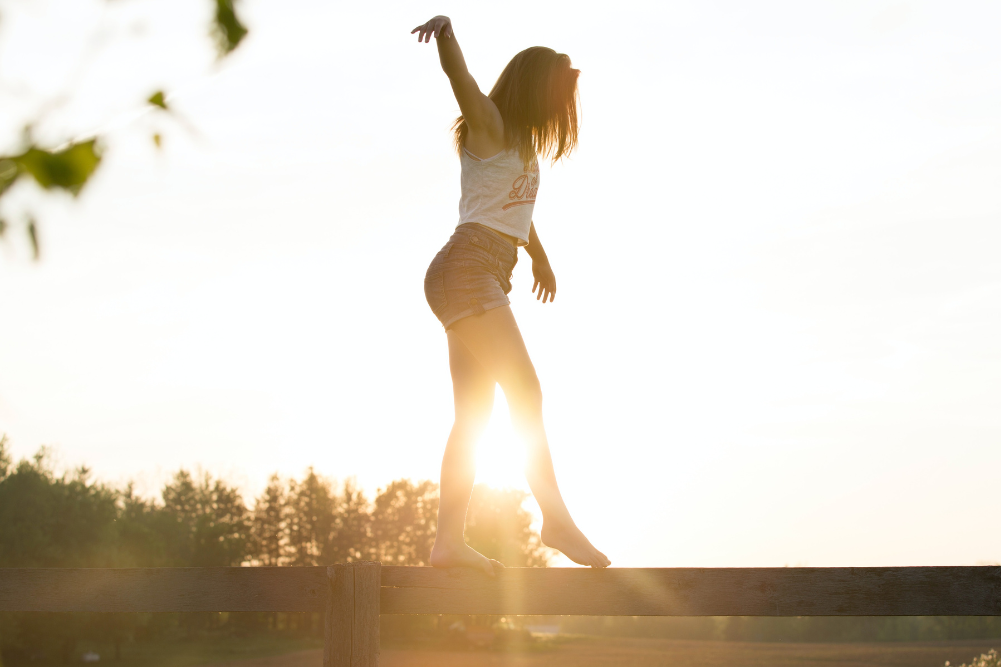Stay calm, I say to myself. Just a few more steps. I’d been contemplating the walk from my hospital bed to the bathroom for more than an hour, with low blood pressure, an elevated heart rate and oxygen desaturation making the 20-metre stroll feel like a marathon for my body. Once I get to the toilet and sit down, a moment of relief washes over me — until I remember that I have to get back to my bed. Being short of breath is something I’d only ever experienced while exercising — running, hiking, surfing or practising yoga. But when I got Covid, breathlessness was one of the first symptoms to strike, and it hasn’t left my body.
I try to take a deep breath into my lungs through my nose, but it feels obstructed. I relax my shoulders, soften my belly and, using all of the wisdom I’ve gained over the years studying yoga and meditation, I try again to take a diaphragmatic breath. “You’re not getting enough oxygen into your body,” a respiratory nurse said to me just before I went to hospital. “You need to strengthen your lungs by taking deep breaths. “Thank you,” I said through laboured breath. “It’s just so hard,” I continued as panic-stricken tears ran down my face. “I know,” she responded, “but you’ll get better in a few weeks.” This was almost three months ago and, much to my dismay, I haven’t recovered yet. To my understanding, this is what many health professionals are calling long Covid.
The “dark night of the soul” is a term used to describe an incredibly difficult period in someone’s life. It’s said to be “the space between who you were and who you will become”. My dark night of the soul began at the start of May, and I’m yet to emerge on the other side.
“Let’s go for a walk,” said one of the doctors back in hospital. I slid hesitantly off the bed as she put a pulse oximeter on my finger and, as I took a few shaky, tentative steps, my heart rate rose to 150bpm and my oxygen saturation dropped to 88 per cent. I had lost all of my physical strength, and my headspace was feeling just as weak. I was young, fit, healthy and vaccinated, and had no health issues prior to getting Covid, so why did I get this unwell? “We’ve been seeing more cases of young, healthy people being affected by long Covid,” she said. “One of the theories is that the immune system can be overworking.” This seems to ring true for me, as I am now dealing with autoimmune-related complications months after getting the virus.
One of the most unsettling things about long Covid is the unpredictability of the symptoms. One day, you might wake up feeling okay and up to doing seemingly “normal” tasks such as cleaning, cooking or working. Other days, you may wake up with such debilitating symptoms that all you can do is rest. Some days, I can walk slowly for 20 minutes without losing my breath too much. Other days, I can only walk for a few minutes before I have to stop, sit down and gasp for air through my mouth. Some days, I can do a full day of work from home. Other days, my body is struggling so much that I have to accept another day of forced rest, hoping with all my might that tomorrow will be a better day.
“I just can’t do this anymore,” I said to my boyfriend in tears the other night while trying to make dinner. As Lachie hugged me, he looked me in the eyes and said, “When the going gets tough, the tough keep going.” The toughness he’s referring to is the ability to stay mentally strong, calm and hopeful, despite the setbacks and feelings of despair. I feel like I keep taking two steps forward, one step backwards, again and again.
Being unwell physically is largely out of your control, but one of the few things you can control is how you relate to the experience. This is where the practices of gratitude and hope can be so helpful. Cultivating gratitude and hope are a way to seek refuge when your life feels unpredictable and unsettling, which is what I’ve been doing by writing in my Gratitude & Hope Journal each day. Author and spiritual teacher Eckhart Tolle once said, “Acknowledging the good that you already have in your life is the foundation for all abundance.” So if I heed this advice, then instead of feeling frustrated that I’m not well enough to surf yet, I can be grateful for eyes that allow me to watch the beauty of the waves lapping against the shore. Rather than getting upset about the fact that I can’t do my regular yoga practice, which leaves me feeling refreshed, energised and calm, I can appreciate the more gentle, restorative styles of yoga, as well as mediation and qigong, which all have grounding effects. Even though I can’t walk to the beach or the shops from my home because we are surrounded by hills, at least I am lucky enough to have a car that can transport me anywhere I need to go. And when it comes to hope, I can keep putting one foot in front of the other — literally and figuratively — drawing strength on the potential of a new day while maintaining trust that the path will continue to reveal itself.
“The secret of happiness, you see, is not found in seeking more, but in developing the capacity to enjoy less,” contemplated the well-known philosopher Socrates. Dark nights of the soul are inevitable, and sometimes they will force you to live in a way that’s more gentle, slow and unfamiliar — but this can actually be a blessing when you’re feeling fragile. It doesn’t take away from the distressing elements of the life disturbance, but it does provide you with the opportunity to strip back your life to the bare essentials. And when you do this, you’re able to consciously choose what’s most important to you, pour your energy into healing and self-care, and appreciate with all your heart the people, places and things that are supporting you in the process.




